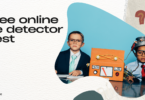Start Quiz
1_ Am I delusional Test
Gain clarity on your perceptions and thoughts with our Am I Delusional Test. This comprehensive quiz is designed to help you explore and assess your beliefs, ensuring a nuanced understanding of your cognitive processes. Delve into thought-provoking questions crafted to unveil potential signs of delusional thinking. By taking this quiz, you embark on a journey of self-awareness, allowing you to recognize and address any distortions in your perception. This valuable tool is not a diagnostic tool but rather a means to encourage self-reflection and enhance your understanding of your thought patterns. Take the Am I Delusional Test now to gain insights into your mental well-being and foster a clearer understanding of your cognitive processes.
2_ Introduction
Perception is a fundamental aspect of our daily lives. It shapes our understanding of the world around us and influences how we interact with others. However, sometimes our perception can become distorted, leading to misunderstandings, confusion, and even delusions. In this article, I will delve into the importance of perception, explore the concept of delusions, and shed light on the significance of the ‘Am I Delusional Test’. By the end, you will have a better understanding of the power of self-awareness and seeking help when needed.
3_ The Importance of Perception in Daily Life
Perception is the process by which we interpret and make sense of the information that comes to us through our senses. It is the lens through which we view the world and make decisions based on our understanding. Our perception is influenced by various factors, including our past experiences, cultural background, and personal beliefs. It is the foundation upon which we build our understanding of reality.
In our daily lives, perception plays a crucial role in our interactions with others. It shapes how we interpret and respond to social cues, body language, and verbal communication. It affects our ability to empathize, understand different perspectives, and navigate complex social situations. Without accurate perception, misunderstandings can arise, leading to strained relationships and conflicts.
4_ Understanding Delusions and Their Impact on Perception
Delusions are beliefs or ideas that are firmly held despite evidence to the contrary. They are characterized by a lack of insight into their irrationality and often manifest as fixed, false beliefs. Delusions can take various forms, such as paranoid delusions (believing that others are plotting against you) or grandiose delusions (believing you have special powers or abilities).
Delusions can have a profound impact on perception. They warp our understanding of reality, leading us to interpret events, situations, and interactions in ways that are not aligned with the actual facts. This distorted perception can cause significant distress, impair our ability to function effectively in different areas of life, and strain relationships with loved ones.
5_ The ‘Am I Delusional Test’ – What Is It and Why Is It Important?
The ‘Am I Delusional Test’ is a tool designed to help individuals assess the accuracy of their perceptions and determine if they may be experiencing delusions. It consists of a series of questions and scenarios that prompt self-reflection and introspection. By answering these questions honestly, individuals can gain insights into the validity of their beliefs and perceptions.
This test is essential because it provides a structured framework for self-evaluation. It allows individuals to step back and critically analyze their thoughts and beliefs, helping them identify any potential delusions that may be influencing their perception. By taking the ‘Am I Delusional Test’, individuals can gain a better understanding of their mental state and whether they need to seek further evaluation or professional help.
6_ How the ‘Am I Delusional Test’ Works
The ‘Am I Delusional Test’ typically consists of a series of multiple-choice or open-ended questions. These questions are designed to gauge the individual’s thoughts, beliefs, and experiences, allowing them to reflect on their perception and identify any potential delusions. The test may cover a range of topics, including paranoia, grandiosity, and beliefs about others’ intentions.
The test aims to provide individuals with a clear and objective perspective on their perception. By asking thought-provoking questions, it challenges individuals to critically analyze their beliefs and consider alternative explanations for their experiences. This process of self-reflection is crucial in gaining insight into one’s mental state and recognizing any potential delusions that may be present.
Explore further aspects of your mental well-being with our Do I Have Trust Issues? Quiz, designed to uncover insights into your ability to trust and form meaningful connections. Additionally, reflect on your moral compass and ethical behavior with our Are You A Good Person? Quiz, prompting introspection into your values and actions. Take these quizzes to gain deeper insights into your psyche and foster personal growth. Start your journey of self-discovery today!
7_ Benefits of Taking the ‘Am I Delusional Test’
Taking the ‘Am I Delusional Test’ can have several benefits for individuals who suspect they may be experiencing delusions. First and foremost, it provides a sense of clarity and self-awareness. By taking the test, individuals can gain a better understanding of their thoughts and beliefs, helping them differentiate between rational and irrational perceptions.
Furthermore, the ‘Am I Delusional Test’ can serve as a valuable communication tool. It allows individuals to express their concerns and experiences to healthcare professionals in a structured and organized manner. This enables healthcare providers to make accurate assessments and provide appropriate support and treatment options.
Additionally, the ‘Am I Delusional Test’ can help reduce stigma surrounding delusions and mental health conditions. By encouraging individuals to take the test and openly discuss their experiences, it promotes a more inclusive and understanding society. It fosters empathy and compassion, encouraging individuals to seek help without fear of judgment or discrimination.
8_ Common Misconceptions About Delusions and the ‘Am I Delusional Test’
There are several common misconceptions about delusions and the ‘Am I Delusional Test’ that need to be addressed. One misconception is that delusions are always a sign of severe mental illness. While delusions can be associated with conditions such as schizophrenia, they can also occur in other mental health disorders, such as bipolar disorder or major depression. It is important to recognize that delusions can manifest in different contexts and may not always indicate a severe underlying condition.
Another misconception is that the ‘Am I Delusional Test’ can provide a definitive diagnosis. While the test can be a useful tool for self-assessment, it should not replace a professional evaluation. The test can provide valuable insights and raise awareness about potential delusions, but a comprehensive assessment by a qualified healthcare professional is necessary to make an accurate diagnosis and develop an appropriate treatment plan.
9_ Seeking Professional Help If the ‘Am I Delusional Test’ Indicates a Potential Issue
If the ‘Am I Delusional Test’ indicates a potential issue with delusions, it is crucial to seek professional help. A qualified healthcare professional, such as a psychiatrist or psychologist, can conduct a thorough evaluation and provide appropriate treatment options. Early intervention is essential in managing delusions and preventing them from causing further distress or impairment in daily life.
It is important to remember that seeking help is a sign of strength, not weakness. Mental health conditions, including delusions, are treatable, and with the right support, individuals can regain control over their perception and lead fulfilling lives. By reaching out to professionals, individuals can access the necessary resources, therapy, and medication if needed, to manage their symptoms and promote overall well-being.
10_ Resources for Further Information and Support
For individuals seeking further information and support regarding delusions and the ‘Am I Delusional Test’, several resources are available. Mental health organizations, such as the National Alliance on Mental Illness (NAMI) or the American Psychological Association (APA), provide comprehensive information on various mental health conditions, including delusions. They offer educational materials, helplines, and support networks for individuals and their families.
Additionally, online platforms and forums dedicated to mental health, such as Psych Central or Mental Health America, can provide valuable insights and personal experiences from individuals who have taken the ‘Am I Delusional Test’. These platforms offer a sense of community and a safe space to discuss concerns, ask questions, and seek guidance from others who may have faced similar challenges.
11_ Real-Life Stories of Individuals Who Have Taken the ‘Am I Delusional Test’
Real-life stories can provide inspiration and hope for individuals who have taken the ‘Am I Delusional Test’ or are considering taking it. These stories highlight the journey of individuals who have recognized their delusions, sought help, and successfully managed their symptoms. They emphasize the importance of self-awareness, seeking professional support, and the potential for recovery.
One such story is that of Sarah, who began questioning her perceptions after experiencing persistent paranoid thoughts. Sarah decided to take the ‘Am I Delusional Test’ and was surprised by the results, which indicated potential delusions. Encouraged by the test, Sarah sought professional help and was diagnosed with paranoid schizophrenia. With therapy, medication, and support from her loved ones, Sarah has learned to manage her delusions and regain control over her perception.
These real-life stories serve as a reminder that delusions can be overcome with the right treatment and support. They showcase the power of self-awareness, the importance of seeking help, and the potential for individuals to lead fulfilling lives despite their struggles.
12_ Conclusion: The Power of Self-Awareness and Seeking Help When Needed
In conclusion, perception is a vital aspect of our daily lives, shaping our understanding of the world and influencing our interactions with others. However, when perception becomes distorted, delusions can arise, leading to misunderstandings and confusion. The ‘Am I Delusional Test’ is a valuable tool that enables individuals to assess the accuracy of their perceptions and gain insight into potential delusions.
By taking the ‘Am I Delusional Test’, individuals can embark on a journey of self-awareness and seek appropriate help if needed. It is crucial to remember that seeking professional support is a sign of strength and can lead to effective management of delusions and overall mental well-being. With the right resources, support, and treatment, individuals can navigate the maze of perception and regain control over their lives.







